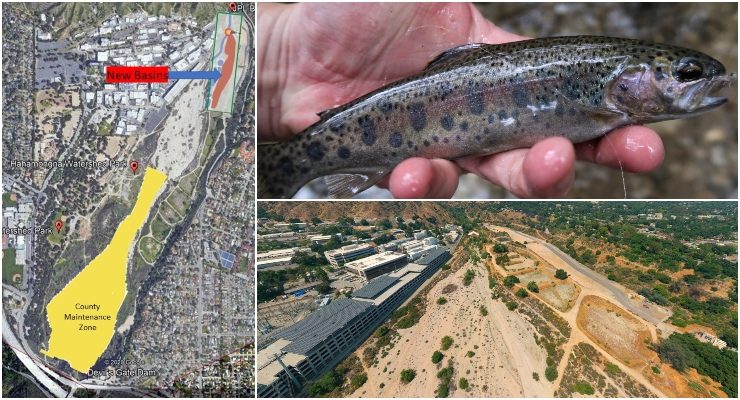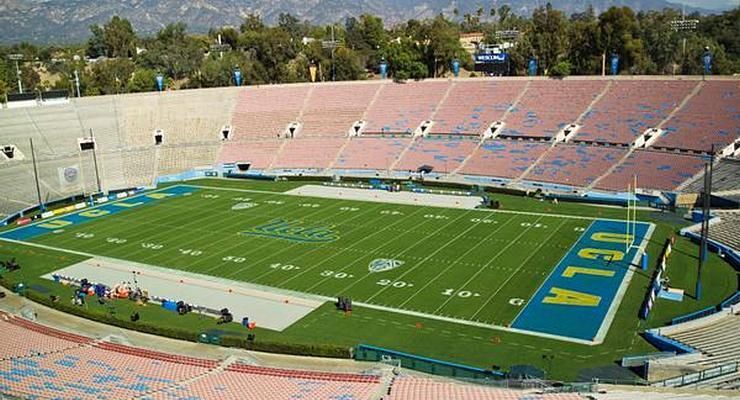
[UPDATED] The Pasadena City Council on Monday certified an environmental impact report (EIR) on a controversial project that local preservationists say threatens fish living in a local stream.
Under the modified conditions, offered by Councilmember Felicia Williams, The City Council directed the City Manager to undertake several activities to help preserve stream flows, natural habitat, basin health.
Pasadena Water and Power will conduct an infiltration study to analyze percolation rates in-stream within the Project area, operate the water intake and diversion system in accordance with fish survey, California Department of Fish and Wildlife permits and other regulatory requirements, PWP will also make renewed efforts to identify and understand the fish status within the streams and seek to support its habitat and along with other water agencies, PWP will explore means to recharge the Raymond Basin and provide semi-annual updates to the City Council or the Municipal Services Committee on efforts to work with RBMB to promote sustainability of the Basin.
“Public policy is a compromise,” Williams said. “If anyone leaves the Council Chamber happy, we haven’t done our job.”
Williams said the city is really fortunate to have many citizens involved in our process.
But those citizens came down on two sides, preservationists hoping to protect trout swimming in the area and residents and city staff seeking two PWP conditional use permits (CUPs) to repair and replace facilities within the Arroyo Seco Canyon area that were damaged or destroyed by the Station Fire-related events of 2009.
“This is a very complex issue here and it’s a very difficult decision,” said Councilmember Gene Masuda.
The decision upholds a 5-0 decision by the Board of Zoning Appeals.
According to Tim Brick, executive director of the Arroyo Seco Foundation, the city has failed to recognize or accommodate the fish in the Arroyo Seco stream and to alter its proposed facilities and operations to protect them and other aquatic species according to pertinent CA Fish and Game code requirements.
Councilmember Steve Madison said the preservationists were correct that the city needs to be mindful of the habitat in the Arroyo Seco, but said the project was a benefit to the utility and its customers.
City staff said the project already takes the fish into account.
“At the end of the day this is a parking lot that is being turned into a water recharge project,” Madison said.
According to the city, damage to the structures has greatly reduced the city’s capacity to divert water from the Arroyo Seco. The proposed improvements would allow for increased utilization of the city’s pre-1914 surface water rights from the Arroyo Seco.
The utility is collaborating with the Raymond Basin Management Board to propose policies and pursue any additional projects that further protect and enhance the groundwater basin.
The city wants to increase the amount of water it diverts from the Arroyo Seco to the Raymond Basin by 15%, from 35% to 50%, due to impacts by recent droughts. The droughts, combined with several other factors, including climate change, have contributed to decreasing groundwater levels in the Raymond Basin.
Negotiations between the city and local preservationists over a project in the Arroyo Seco broke down last week.
Pasadena Now reported last week that in a July 9 email, PWP General Manager Gurcharan S. Bawa, said the utility will not agree to postpone certification of the environmental impact report (EIR) and delay the project.
“Given our past conversations, PWP does not see a way forward to resolving this matter,” Bawa wrote.
According to Bawa, PWP rejected the group’s demands because any agreement with preservationists might conflict with requirements imposed by the California Department of Fish and Wildlife to complete the project.
The California Environmental Quality Act, CEQA, also requires that an environmental analysis consider the environmental changes created by the proposed project.
To maintain and increase groundwater levels, the Raymond Basin Management Board (RBMB) initiated a voluntary 30% reduction of groundwater production rights for all pumpers in the Pasadena subarea in 2009.
The preservationists claim trout inhabit the streams there and the work being proposed could destroy the fish.


















